Back in November/December 2012 we were in the Tuamotu Islands on our second mission in French Polynesia. During that mission we had two local researchers (Nina and Bertrand) looking at turtle abundance on the atolls. We would drop them off on land each day and they would walk the beaches looking for turtle nests and tracks. While walking along the shore of Toau they came across a whale skull. When reports of the skull came back to the ship, we decided that it would be worth collecting this skull and taking it back to be displayed at The Institute for Research and Development (IRD). The skull was estimated to weigh 70kg so we figured it would be quite easy.
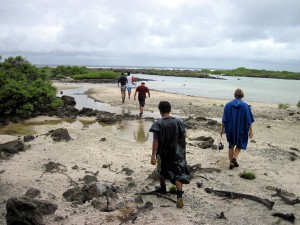
Six of us headed off to recover the whale skull. We got dropped off in the twin vee and had to walk about a mile and a half to reach the skull. Walking along the shore of Toau, we noticed the large amount of buoys, fishing nets and other boating debris all washed up on the shore. This is a common site on all of the islands we have visited. On the populated islands, people will collect a lot of this material and recycle it for other uses.
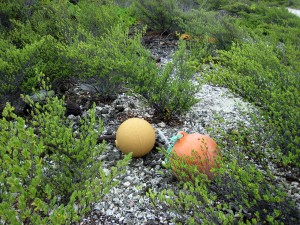
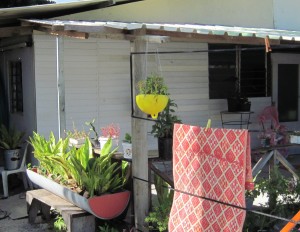
When we finally arrived at the whale skull we noticed a lot of other bones from the same whale lying around so we gathered those up as well. We also found a couple of teeth belonging to the whale, which helped us to identify it as a sperm whale. However, the very first thing we noticed was that the skull was definitely heavier than 70kg (much heavier)! So we had two options left to us, carry it back along the shore the way we came, or try to cut across the island which would be a much shorter distance (400 meters), but there would be a lot of thick vegetation to get through.
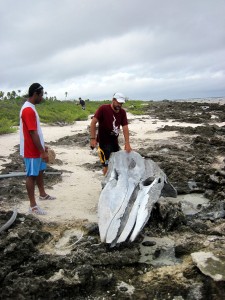
We started walking along the coast, but quickly started to realize that it was going to be too difficult to carry it all the way back along the coast. We made the decision to try and cut across the island. It took some searching, but we found an area that was “passable”. Bertrand went ahead to find a way through the thick trees while the rest of us took turns carrying the whale skull and laying down fallen palm leaves to make it easier to walk over the ground cover. After a lot of sweat and second guessing the decision to come and get the skull, we made it to the lagoon on the other side of the island. Unfortunately where we came out was too shallow for the boat to make it to the shore. This meant another 300 meters of carrying the skull through the water. The upside to this was that there was no more vegetation to worry about; the down side was that as soon as the whale skull hit the water, all of the pores and empty spaces filled with water and it became much heavier.
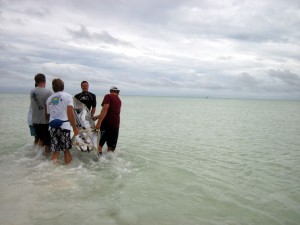
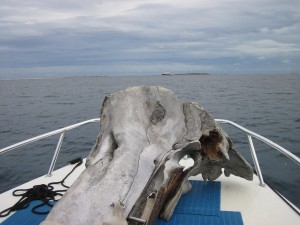
Once the skull was on the boat, the weight became a problem yet again. It was so heavy that it grounded the boat in the sand and we had to push the boat into deeper water. Eventually we were able to get into deep enough water for us all to hop in the boat and we made it back to the Shadow. The whale skull is now displayed at IRD and was well worth the effort.
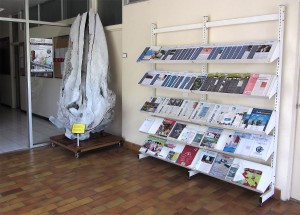
(Photos 1-6 by Brian Beck; 7 Serge Andrefouet)
To follow along and see more photos, please visit us on Facebook!